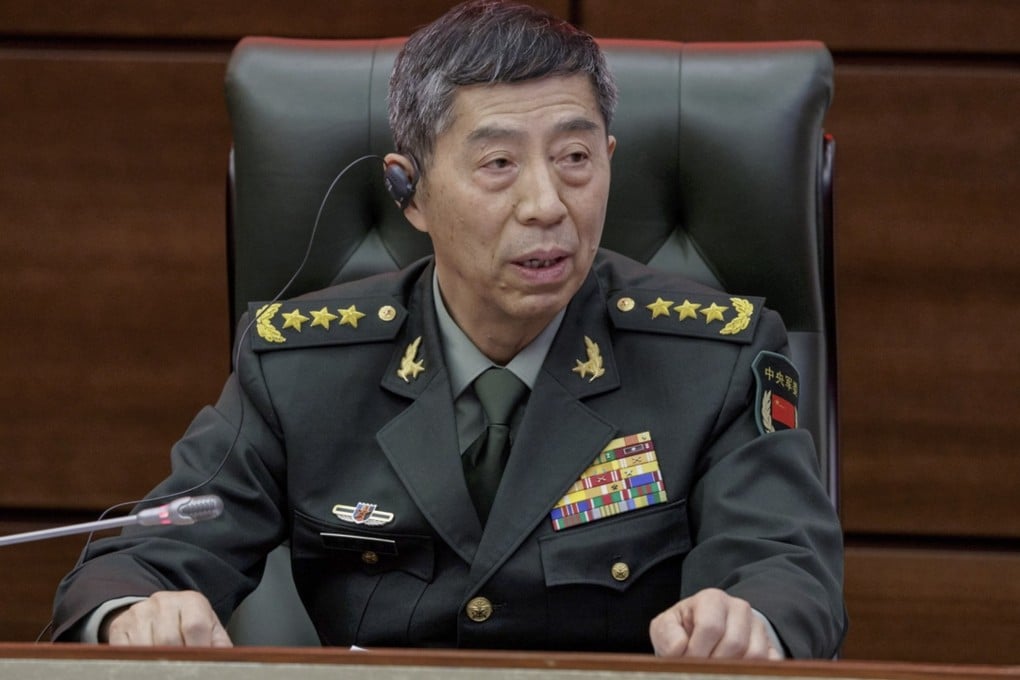China’s defence chief Li Shangfu heads to Russia, Belarus on 6-day trip
- Li will give a speech at the Moscow Conference on International Security and meet defence chiefs, ministry says
- He will also meet state and military leaders in Belarus – the first visit by a Chinese defence minister in five years

Li will attend the Moscow Conference on International Security and will also travel to Belarus during the six-day trip, according to defence ministry spokesman Colonel Wu Qian.
He said Li would give a speech at the Moscow conference and meet the Russian and other countries’ defence chiefs.
“During his visit to Belarus, he will meet and hold talks with Belarusian state and military leaders, and visit Belarusian military units,” Wu said.
It is Li’s second visit to Russia since he became defence minister in March. He will meet his Russian counterpart, Sergei Shoigu, for the third time – the pair met twice in April, in Moscow and New Delhi.
In Moscow, Li and Shoigu pledged to promote cooperation between the two armed forces, including on military technology, and to support each nation’s “core interests”.
